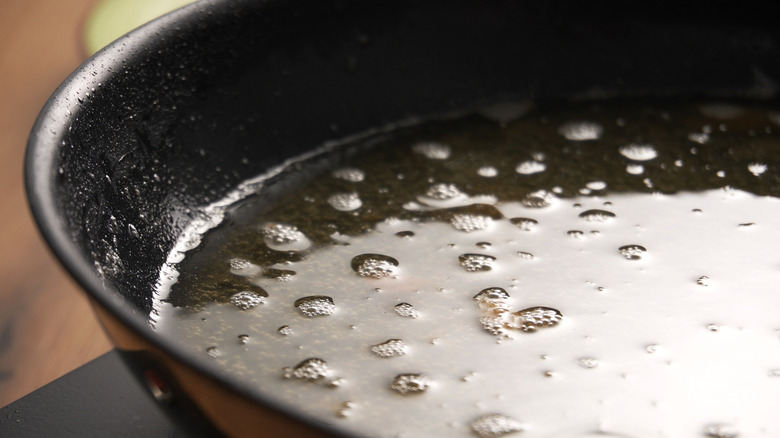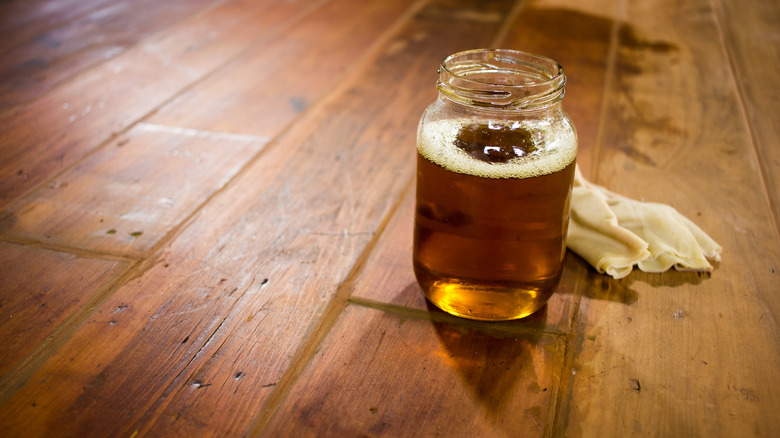Use One Easy Trick To Quickly Dispose Of Used Cooking Oil
If you have a fairly small amount of cooking oil, such as the amount left in your skillet after you've pan-fried a fish fillet, you may be tempted to just pour it down the sink, but even a little bit of oil can clog your pipes. The proper way to dispose of used cooking oil is by throwing it out, but you can't just dump it into the trash can in its liquid state without making a mess. Instead, you can transform that oil into something easier to deal with by mixing it with baking soda.
When added to cooking oil, baking soda creates a semi-solid paste, which can then be scooped out of the ban, wrapped in paper, plastic, or foil, and then tossed into the trash. Of course, if you have to dispose of a lot of oil — which might be the case if you've been deep-frying instead of pan-frying (and yes, there's a difference) — you might not want to waste all that baking soda. Instead, you can simply pour the oil into a resealable container (once it's cooled down, of course) and then put the entire bottle into the garbage.
Cooking oil can also be reused or recycled
Thrifty cooks, including restaurant chefs, have long been reusing their frying oil. There's no set number of times you can reuse it, since various factors such as the type of oil or what it's been used for may affect its longevity. As a rule of thumb, you can use it until it starts to smell funny or look foamy, at which point it's time to get rid of it or at least repurpose it in a non-food-related way. Some of the things you can do with cooking oil that's past its prime include lubing your car, seasoning your cast-iron pans, polishing your furniture, softening leather, and getting paint off your skin.
Recycling used cooking oil may be a bit more difficult for private individuals. Some recycling centers may accept it, and there may even be some communities where appropriately packaged cooking oil is picked up at curbside as part of the regular trash and recycling service, but neither of these is a universal practice. However, commercial cooking oil recycling exists on a larger scale for restaurants, so you may be able to contact a smaller establishment in your neighborhood to see if they will accept and recycle your cooking oil along with their own. If so, it may be used to produce biodiesel, which is not only an economical alternative to fossil fuel but also burns cleaner. Who'd have guessed that french fries could be so good for the environment?

